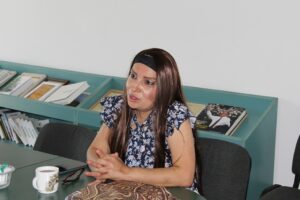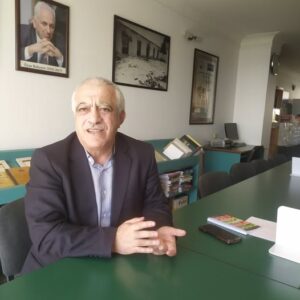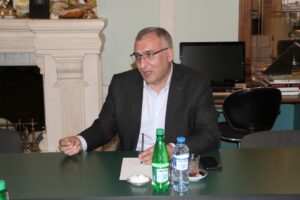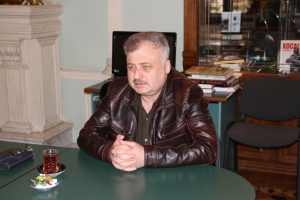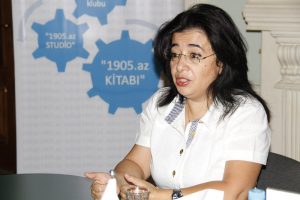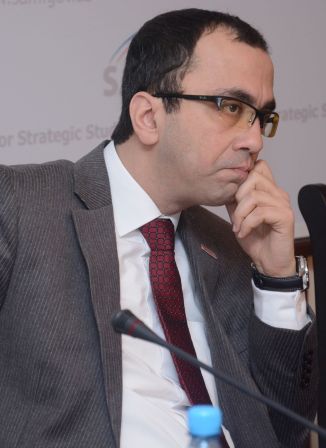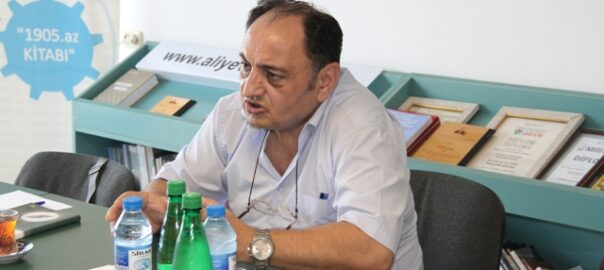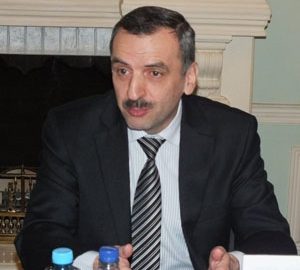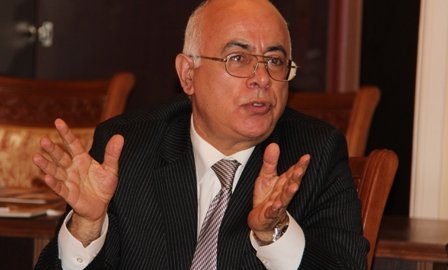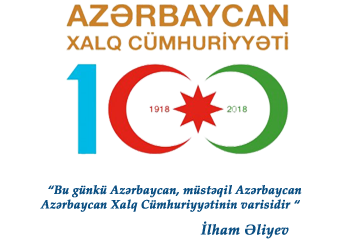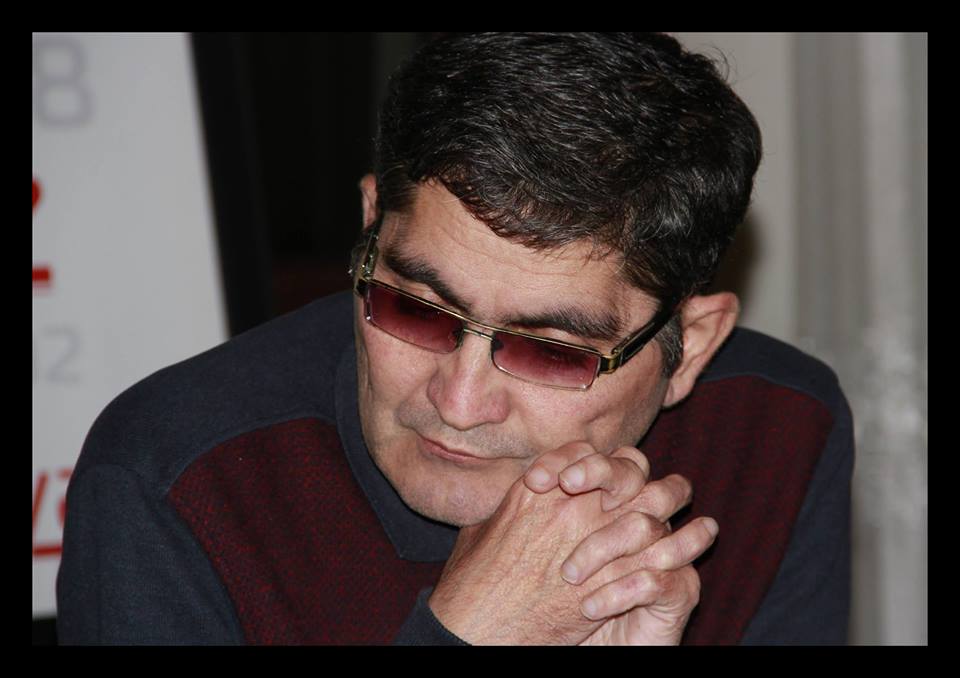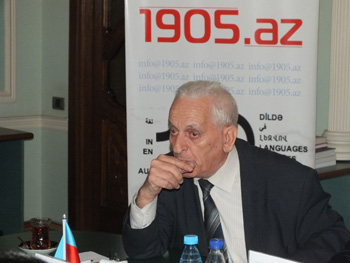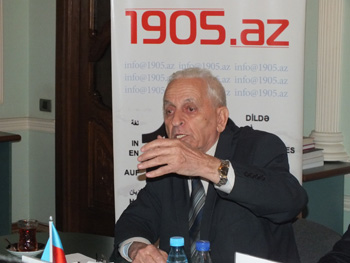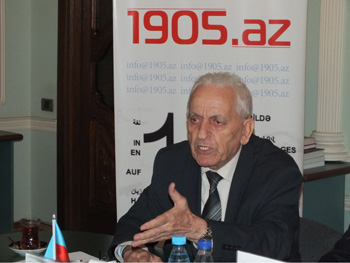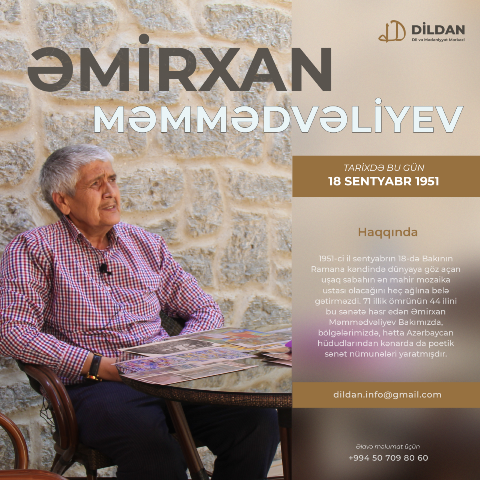1.1. PACE provisional criteria on “political prisoners” serving certain predetermined objectives
The PACE Committee on Political Affairs drew up a package of recommendations ahead of Azerbaijan’s accession into the Council of Europe. The 17-item package was presented to the public in early 2000. With this document, PACE asked the Republic of Azerbaijan to assume certain commitments presented under five sections. Shortly after it was submitted, the president, the prime minister, the chairman of the Milli Maclis (parliament), as well as the leaders of the main opposition parties signed the PACE package of recommendations. Thus, Azerbaijan proved its readiness to assume the commitments envisaged in the package.
The fourth section of the package of recommendations was devoted to the protection of human rights. What commitments were put forward in this section? Along with other issues of human rights and fundamental freedoms, it called for re-examining of the criminal cases and the release of inmates recognized as “political prisoners” by human rights organizations.
Proceeding from the PACE’s Opinion 222 containing the recommendations, the Committee of Ministers of the Council of Europe at its session on 9 November 2000 passed a special Resolution, inviting Azerbaijan to become a member of this organization, as well as to join the Statute of this international institution. On 17 January 2001, a decision was taken to accept Azerbaijan to this organization as a full-fledged and equal member. On 25 January 2001, an official ceremony was held in Strasbourg to mark Azerbaijan’s membership of the Council of Europe. The population of our country highly appreciated Azerbaijan’s membership of the Council of Europe as an equal member. It was a crucial phase in a secular, democratic and legal state building, in the strengthening of Azerbaijan’s state independence, its integration into Europe, as well as in significantly reinforcing the country’s positions in the system of international relations.
Prior to Azerbaijan’s admission to the Council of Europe, the call for the re-examination of the criminal cases of prisoners, recognized by human rights organizations as “political prisoners”, and their possible release triggered more controversy among the commitments assumed by Azerbaijan. The core of the subject was mainly about the legal nature of the “political prisoners” notion with subjective and biased consequences with discriminatory approaches originating from it. Thus, the notion of “political prisoners” and its legal nature had not been defined in any international document, including in those of the Council of Europe before Azerbaijan was admitted to this organization.
The term “political prisoners” did not have clear-cut and precise international-legal criteria. Therefore, the requirements of different international organizations and local NGOs for defining political prisoners differed significantly. Thus, while some organizations drew up longer lists, others’ lists were shorter. Each of these organizations relied on their special criteria for inclusion detained persons in the category of “political prisoners”. In most cases, various institutions approached the notion of “political prisoners” from the context of their corporative interests. And this, in practice, led to collisions in placing convicted persons into the category of “political prisoners”.
The Secretary General of the Council of Europe set up a group of independent experts, made up of Mr. Stefan Trechsel, Mr. Evert Alkema and Mr. Alexander Arabadjiev, to find a solution to the collisions. The group of independent experts was mandated to draw up criteria for defining the existence of political prisoners in Armenia and Azerbaijan. In a short time, the group of independent experts drew up a report, titled “Cases of alleged political prisoners in Armenia and Azerbaijan”, and handed it over to the Secretary General of the Council of Europe on 16 July 2001.
The same report reflecting the criteria for defining the existence of political prisoners was adopted as a document of the Council of Europe on 24 October 2001 (SG/Inf (2001) 34).
Prior to the findings of the group of independent experts of the Council of Europe, the notion of “political prisoners” was first used by the UN mission to Namibia in 1989-1990, and later, by the International Committee of the Red Cross (ICRC) in the South African Republic. For the notion of the “political prisoners”, those missions used the criteria of Professor Carl Aage Norgaard, also known as the Norgaard Principles. Later, proceeding from own criteria, Amnesty International started to use the notion of “political prisoners”. However, these samples for the defining of the notion “political prisoners” were not international-legal criteria adopted universally or regionally.
In their researches, the group of experts neither used conceptual approaches, nor worked out any new principles to define the existence of political prisoners. Referring to the criteria used by Amnesty International, independent experts said that this organization defined “political prisoners” as “persons who committed crimes for political motives”, though a more limited notion can be applied in practice. Thus, the notion of “political prisoners” should be applied to the “persons arrested for their political and religious convictions” (paragraph 7 of the report). So, the independent experts did not take into consideration the criteria of Amnesty International in their respective reports; and in order to determine the existence of political prisoners in Armenia and Azerbaijan, they turned to the Norgaard’s Principles” (paragraph 5 of the report), used during the UN mission to Namibia in 1989-1990 and later by the International Committee of the Red Cross (ICRC) mission to the South African Republic by applying the criteria drawn up on the basis of these principles.
In their reports, the experts stressed that the governments of those countries had accepted the existence of political prisoners.
Professor Norgaard’s findings were part of the national reconciliation mission in Namibia and in the South African Republic.
At that time, in conditions of division in those countries, confrontations on ethnic and racist grounds prevailed in those countries. However, the situation in Azerbaijan differed profoundly from that in those countries. There was no need for the national reconciliation mission in Azerbaijan as there was no split in our country.
In addition to this, unlike the governments of Namibia and the South African Republic, the government of Azerbaijan had denied the existence of political prisoners in the country. Thus, the missions of the Council of Europe experts and of Professor Norgaard were absolutely different from each other, and, thus, it was inappropriate to compare the Council of Europe member states and African countries by applying the same criteria to Europe and the European states.
So, the criteria proposed by the independent experts did not at all reflect the existing realities in the Council of Europe bloc. In this regard, Paragraph 24 of the report by the Council of Europe experts reads: “In the issue of political prisoners, this term even implies to the interference in the internal affairs of a country accused of the existence of such prisoners.”
Further, the experts note that they were asked to submit opinions about Armenia and Azerbaijan. Thus, “the experts objectively reviewed the existing facts and… formed an opinion by putting forward an evaluative consideration”. So, as the Council of Europe experts acknowledged, in essence, they had substantiated the merely political task with legal concepts. And in order to achieve this objective, they put forward considerations in advance. Can you imagine it? Later, an opinion was formed on the basis of these considerations. This approach can in no way be considered objective.
Nevertheless, according to the criteria defined by the independent experts on the basis of the “Norgaard’s Principles”, a person deprived of his/her personal liberties is to be regarded as a “political prisoner” (item 54 of report):
a. if the detention has been imposed in violation of one of the fundamental guarantees set out in the European Convention on Human Rights and its Protocols, in particular, freedom of thought, conscience and religion, freedom of expression and information, freedom of assembly and association;
b. if the detention has been imposed for purely political reasons without connection to any offence;
c. if, for political motives, the length of the detention or its conditions are clearly out of proportion to the offence the person has been found guilty of or is suspected of;
d. if, for political motives, he or she is detained in a discriminatory manner as compared to other persons; or,
e. if the detention is the result of proceedings which were clearly unfair and this appears to be connected with political motives of the authorities.
Along with proposing the criteria to define the existence of the political prisoners, independent experts also acknowledged that the notion of the “political prisoners” was extremely vague and therefore, it can be used for different, even mutually contradicting, as well as for predetermined objectives. Thus, this notion is deprived of any legal significance. I am reiterating that this was an admission of independent experts.
In the third paragraph of the report, the experts said: “The notion of the “political prisoners” is not a formal legal term, and neither an international document, nor a decision of interstate or non-state organizations uses the notion of the “political prisoners” with a precise definition. The current research indicates that acceptance of the general definition cannot be considered reasonable; everything depends on the function the definition should serve”. In other words, the proposed notion of the “political prisoners” should serve the aim defined beforehand, that is, if any expert, who carries out a function of proving the existence of the political prisoners in any country, he/she will achieve his/her objectives by applying the mentioned criteria.
At the same time, if another expert carries out a task of proving non-existence of the political prisoners in the same country, this expert will also achieve his aim using the same criteria. Thus, the criteria proposed by the Council of Europe experts serve a predetermined outcome. Therefore, any assessment carried out in accordance with these criteria is rather biased and cannot be considered admissible from a legal point of view.
One of the most controversial points in the report of the independent experts pertains to persons who committed political crimes. They indicated that persons, who committed political crimes, could be considered political prisoners. For this to happen, the detention and conviction of these people should be in violation of the requirements of the European Convention on Human Rights to serve as a condition.
At the same time, it should be noted that the criteria drawn up by the independent experts were the ones that could be applied to the convicts regarded as the “political prisoners” by human rights organizations prior to the membership of Armenia and Azerbaijan of the Council of Europe. These criteria, as a consensus were designed to quickly consider the cases of specific prisoners and were provisional by nature. They were not adopted at a PACE plenary session and does not establish a precedent for universal application to all member states in defining the political prisoners.
One of the noteworthy points in the report of the independent experts of the Council of Europe was that a respondent state was obligated to prove the existence/non-existence of political prisoners. Paragraph 46 of the experts report noted that unless a “respondent state”, supposed of having political prisoners, succeeds in establishing that the person concerned is detained in full conformity with the ECHR requirements, the person concerned is to be regarded as a political prisoner. However, one of the fundamental principles of the law is that it is the task of a plaintiff not a respondent to prove it. The approach of the independent experts is in evident contradiction with this principle.
Here is another aspect worth of attention from the report of the independent experts of the Council of Europe. The report indicates the detention of persons, who committed crimes in violation of one of the norms set out in the European Convention on Human Rights and its Protocols as a condition for defining the “political prisoners”. This condition is indicated as one of the criteria reflected in paragraph 54 of the report. As already mentioned, neither the Convention, its Protocols nor any document of the Council of Europe contains a relevant article. Even decisions of the European Court of Human Rights of precedent nature for all member states does not regard persons convicted of such violations as “political prisoners”.
The court does not use a notion of a “political prisoner” in its activities at all. This, in my view, is associated with the uncertainty of the legal nature of that notion. Such a case once again indicates that the Council of Europe has no legal mechanisms to define this or other convict as a “political prisoner”.
Proceeding from the above, there emerges a logical question: Who, or which institution of the Council of Europe is vested with powers to make a decision on persons detained in violation of one of the norms prescribed by the European Convention on Human Rights and its Protocols as a “political prisoner”? This is not a simple question. Thus, persons serving imprisonment terms in member states are convicted by relevant national courts. Under the national legislation, the sides, who are dissatisfied with court decisions or those whose rights were violated, can restore their violated rights by appealing to courts of higher instances. In case, this is impossible, one can apply to the European Court of Human Rights by complying with the appropriate procedural rules. This means that making a decision on whether or not any provision of the European Convention on Human Rights and its Protocols has been violated by national legal-judicial system falls within the exclusive jurisdiction of the European Court. However, according to the logic of the report by the group of independent experts of the Council of Europe, the rapporteurs on relevant countries were vested with these powers. This, for its turn, explicitly contradicts the principle of supremacy of the law enshrined in Article 3 of the Statute of the Council of Europe.


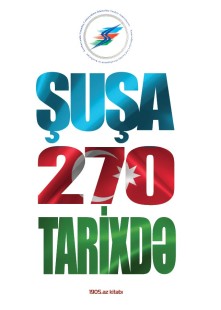
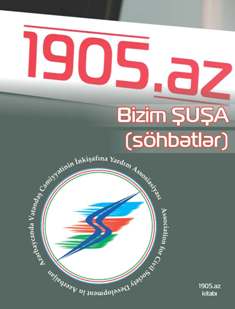
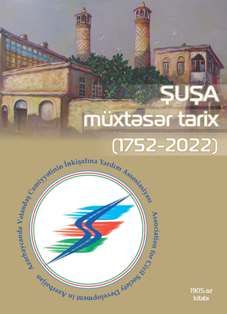

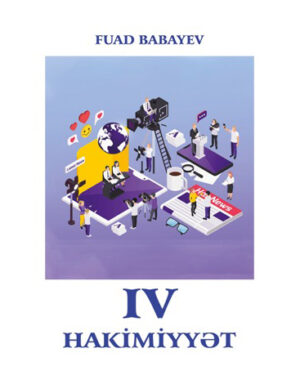

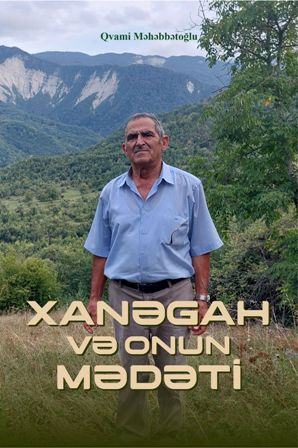










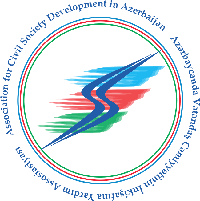
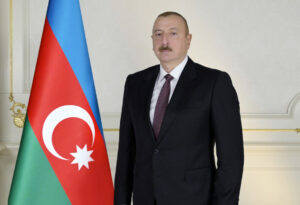 Prezident İlham Əliyev Qazaxıstana dövlət səfəri ilə bağlı paylaşım edib VİDEO
Prezident İlham Əliyev Qazaxıstana dövlət səfəri ilə bağlı paylaşım edib VİDEO Azərbaycan Prezidenti Fransanın ölkəmizdə yeni təyin olunmuş səfirinin etimadnaməsini qəbul edib VİDEO
Azərbaycan Prezidenti Fransanın ölkəmizdə yeni təyin olunmuş səfirinin etimadnaməsini qəbul edib VİDEO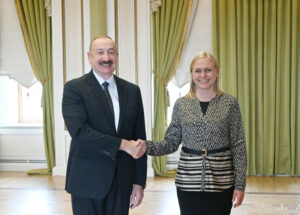 Prezident İlham Əliyev ATƏT-in fəaliyyətdə olan sədrinin başçılıq etdiyi nümayəndə heyətini qəbul edib VIDEO
Prezident İlham Əliyev ATƏT-in fəaliyyətdə olan sədrinin başçılıq etdiyi nümayəndə heyətini qəbul edib VIDEO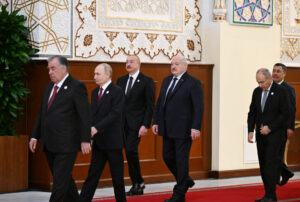 Prezident İlham Əliyev Düşənbədə MDB Dövlət Başçıları Şurasının məhdud tərkibdə iclasında çıxış edib
Prezident İlham Əliyev Düşənbədə MDB Dövlət Başçıları Şurasının məhdud tərkibdə iclasında çıxış edib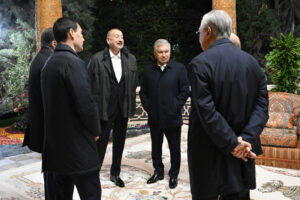 Prezident İlham Əliyev Düşənbədə MDB dövlət başçılarının qeyri-rəsmi şam yeməyində iştirak edib VİDEO
Prezident İlham Əliyev Düşənbədə MDB dövlət başçılarının qeyri-rəsmi şam yeməyində iştirak edib VİDEO